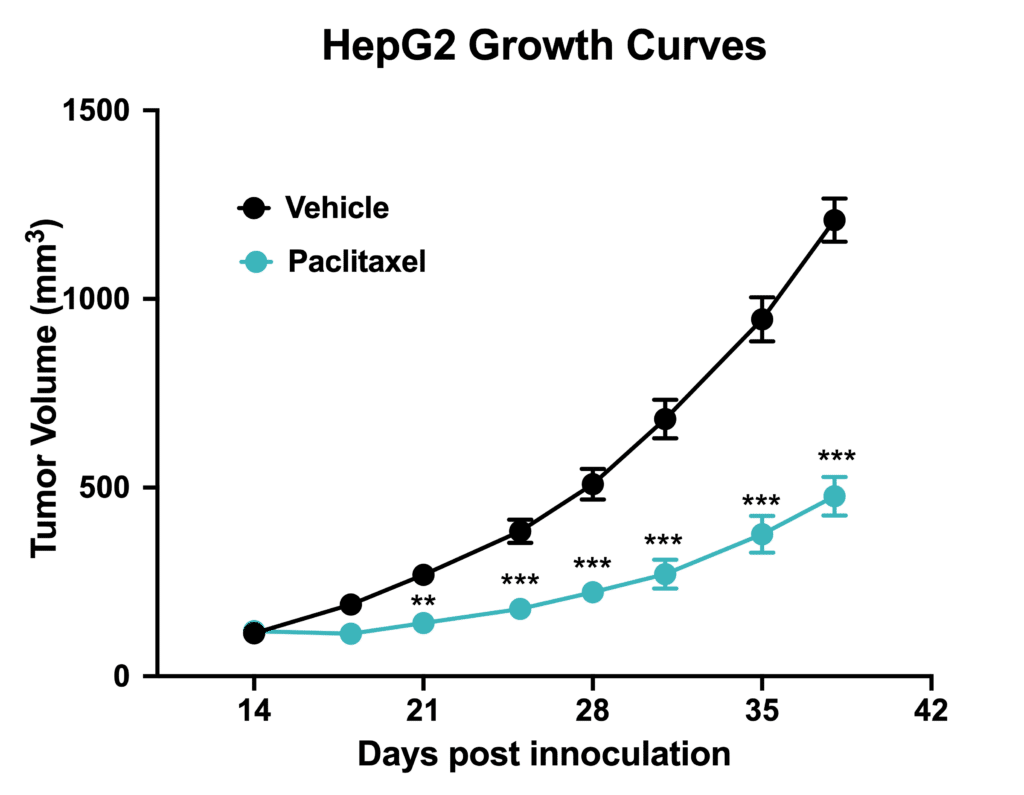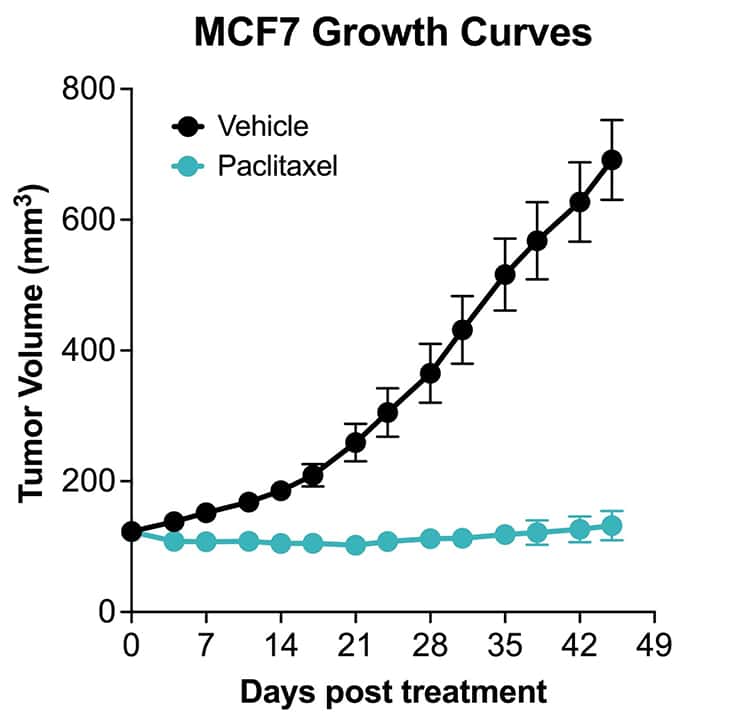Xenograft Mouse Models
Confidently translate your pharmacological research from benchtop to bedside with patient-derived xenograft models.
Our team of scientists can help you select the right model for your application and perform a full in-vivo pharmacological response profile including evaluation of therapeutic response, cell behavior, and tumor metastasis. With a state-of-the-art barrier facility suitable for housing immunodeficient and severely immunocompromised animals on-site, we perform high-quality experiments and deliver data you can trust.
By leveraging our resources, expertise, and fully customizable study designs, you get the data you need to advance immunotherapies and transform the state of oncology treatments.
Increase your predictive ability with xenograft tumor models
Mouse xenograft models involve the transplantation of cell line-derived xenograft (CDX) or patient-derived xenograft (PDX) into immunodeficient or humanized mice. With these tumor models, you create an environment for growing human cancer, monitoring its progress, and evaluating experimental treatments.
Evaluate your immunotherapeutic agents and combination therapies with xenograft mouse models
Set your research up for success by leveraging our expertise and outsourcing your in vivo experiments.
CDX Models
Test your immunotherapeutic agents and combination therapies in any of our human cell lines.
PDX Models
Explore our PDX models for accurately predicting the clinical success of your targeted cancer therapies. Direct from patient sample to mouse xenograft, PDX models preserve the genetic complexity and tissue heterogeneity of the tumor you are targeting.
- Increase replicability with tumor genetic stability: PDX models allow for the propagation and expansion of patient tumors without significant genetic transformation of tumor cells over multiple murine generations.
- Mimic realistic tumor microenvironments: Within PDX models, patient tumor samples grow in physiologically-relevant tumor microenvironments that mimic the oxygen, nutrient, and hormone levels found in the patient’s primary tumor site.
- Explore patient-specific attributes: Implanted tumor tissue maintains the genetic and epigenetic abnormalities found in the patient.
- Accelerate therapeutic impact with higher predictive ability: Numerous studies have found PDX models exhibit similar responses to anti-cancer agents seen in the actual patient who provided the tumor sample.
Enhance your study findings with custom services and tools
Get the most out of your study and take advantage of our bespoke add-on services that include IVIS imaging, whole blood, spleen, lymph node analysis, and more.

Chemotherapy validation in human hepatic cancer HepG2 xenograft model. 5 x106 HepG2 cells were subcutaneously injected into the rear flank of nude mice. Once the tumor size reached ~100mm3, mice were randomized into vehicle group (n=6,treated with normal saline) and paclitaxel group (n=5, 20 mg/kg, IP weekly).Data are mean ± SEM. **p<0.01, ***p<0.001.

Chemotherapy validation in human breast cancer MCF7 subcutaneous xenograft mouse model. 10 x106 MCF7 cells (with Matrigel) were subcutaneously injected into the rear flank of nude mice. Once the tumor size reached ~100mm3, mice were randomized into the vehicle control group (treated with normal saline) and the paclitaxel group (20 mg/kg, i.p once/week ). Data area mean ± SEM; n=5 for each group.
Get the data you need with customized experiments and expert advice.

Custom-tailored models for your unique research questions.

Reach your discoveries sooner with industry-leading 4-7 week lead times.

Decades worth of experience across a breadth of research areas.
Publications
Frequently Asked Questions
Yes, we do offer PDX models. We can also assist clients with any tumor genotype that can be acquired through NCI.
Yes. We provide profiles directly from the cell line resource (ie ATCC). All information is readily available and will be provided to the client upon request.





